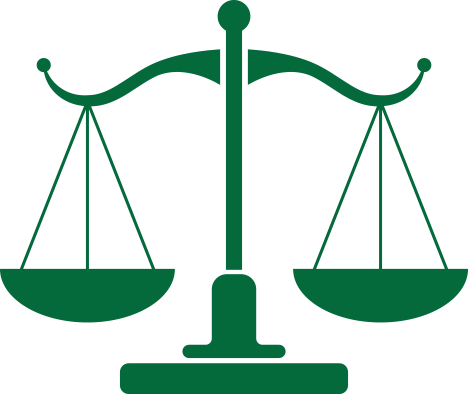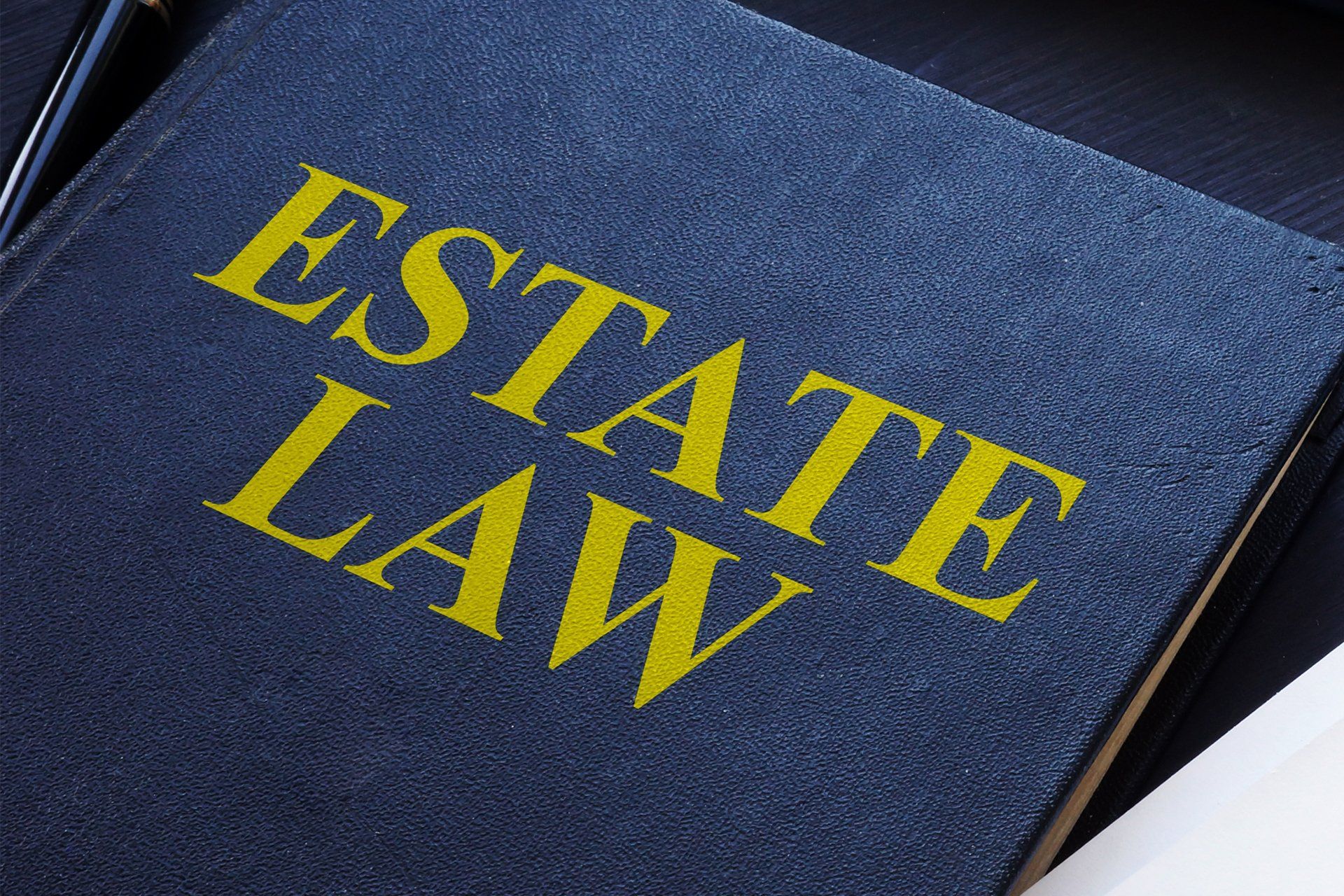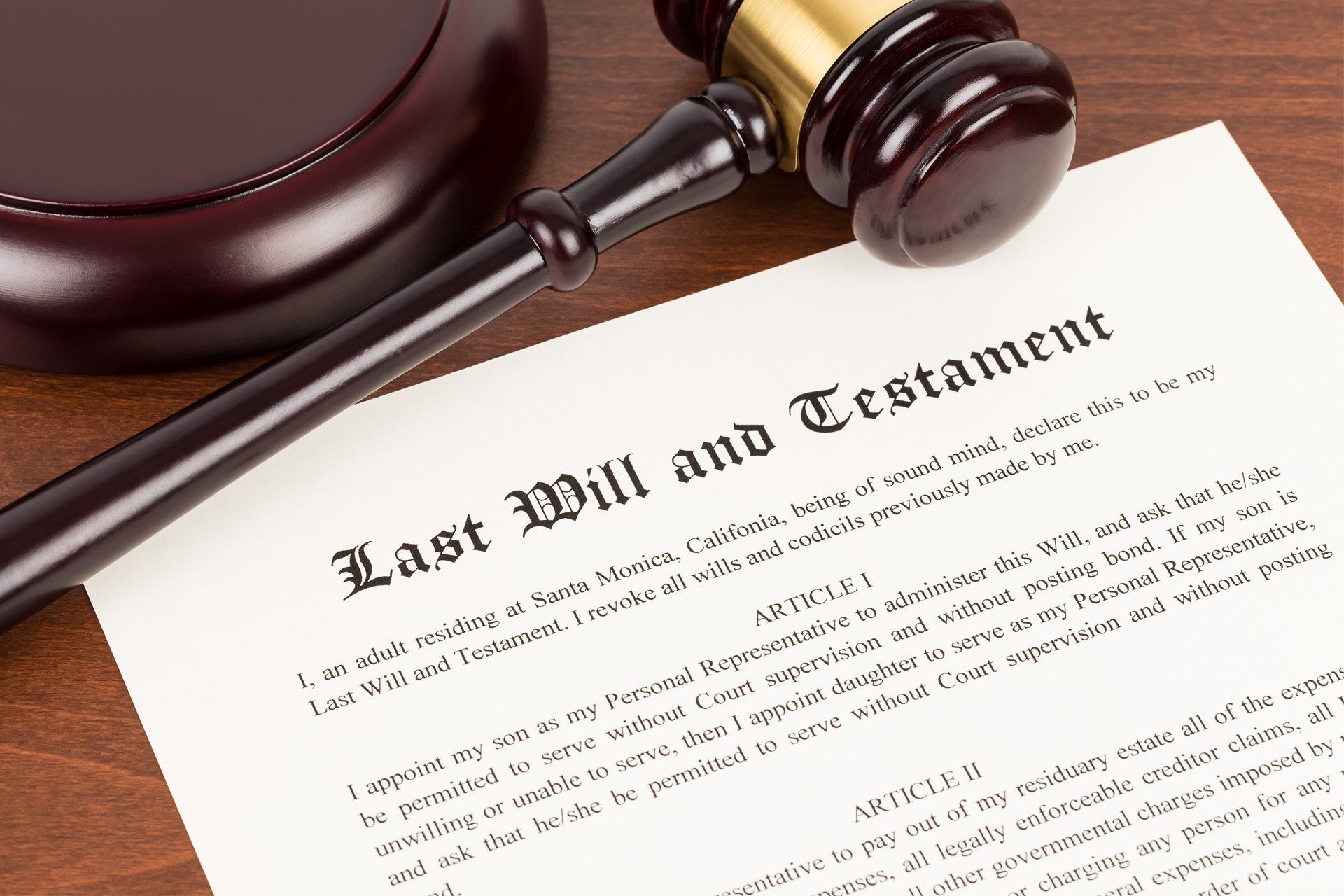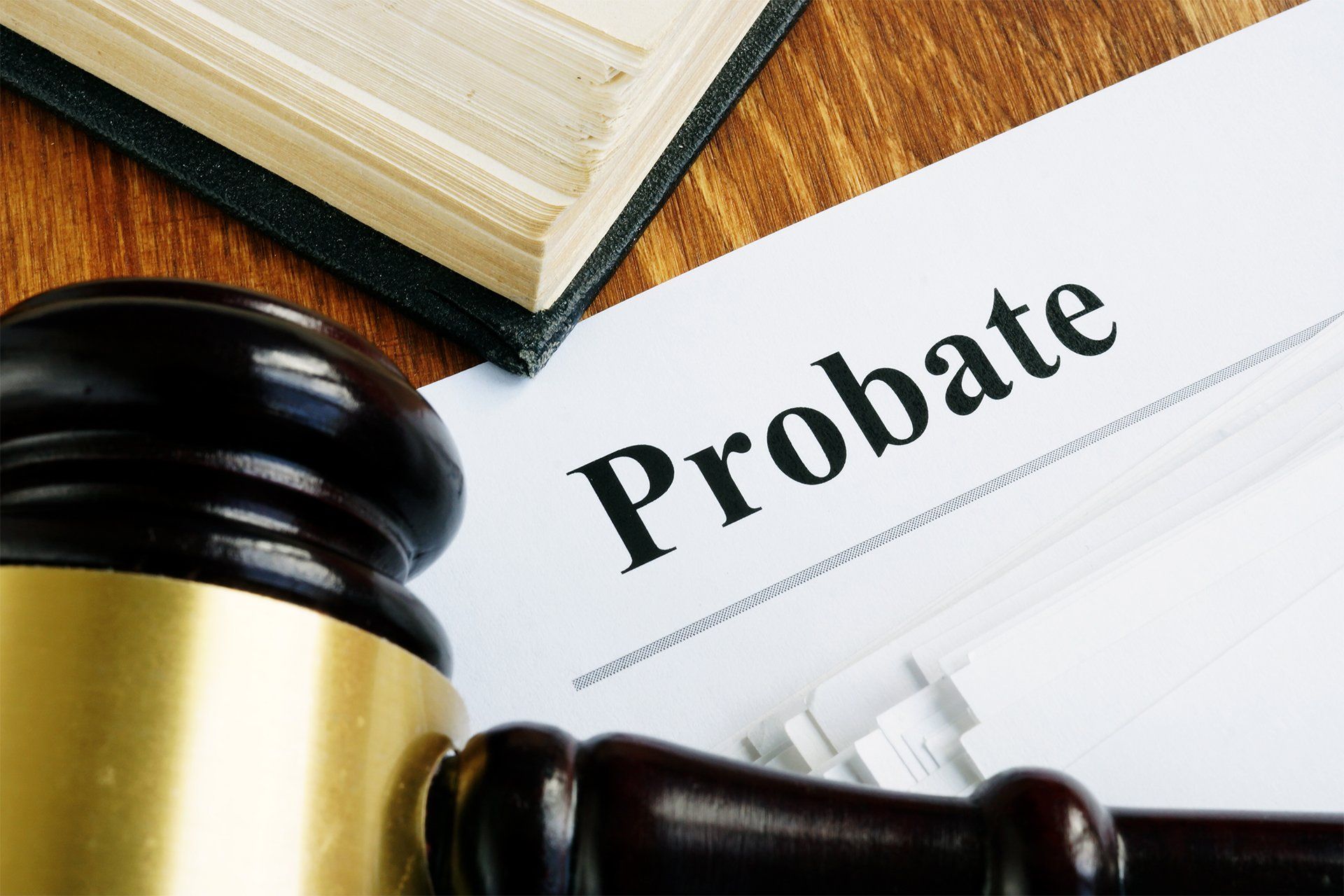Wills, Trusts, & Probates, Including Contested Wills
Estate Planning
Everyone has an estate. An estate consists of all of a person's assets, including, but not limited to real estate, household furnishings and other personal property, motor vehicles, bank accounts and other intangible investments such as stocks, bonds, annuities, life insurance policies and retirement accounts. An estate plan is used to make certain that upon your death, your assets are disbursed pursuant to your wishes and not determined by probate laws. An estate plan will also carry put your intentions for both your finances and health requirements, while you are still alive, if you become incapacitated.
A well conceived estate plan may help you avoid or minimize the effect of probate, reduce estate taxes and help protect and manage your assets while you are alive, if you become medically incapacitated.
Last Will and Testament
Everyone should have a will, regardless of the size or complexity of their estate. A will only becomes effective upon a person's death. Prior to that time it can be changed as changes occur in a person's life. A will contains the designation of a personal representative, who is a person that you choose to manage your estate after your death. The personal representative gathers and liquidates the deceased person's assets, pays the person's debts and disburses the reminder of the assets to the individuals designated in the will to be beneficiaries. A will can also be used to designate a guardian of a person's minor children so that the determination of who cares for your children is not made by someone else. You can also establish testamentary trusts so that your assets are managed for your minor children until they become old enough to manage the assets you leave them.
Trusts
There are different types of trusts, revocable trusts, irrevocable trusts and charitable trusts.
Revocable Trusts
With a revocable trust, you maintain control of your assets and can make changes to who you want to recieve your assets whenever you want to. Revocable trusts are often used to avoid probate by naming a successor trustee to manage and disburse trust assets to your named beneficiaries upon your death.
Irrevocable Trusts
With an irrevocable trust, you no longer own or control the assets that are transferred into the trust. Irrevocable trusts are often used to minimize tax consequences or to protect the assets put into the trust from your creditors.
Charitable Trusts
Charitable trusts can be used to designate gifts to one or more charities.
Powers of Attorney
A power of attorney is used to designate an agent to handle financial and legal matters on your behalf, while you are still alive, if you become unable to handle them yourself. A Durable Power of Attorney remains effective even after you become incapacitated. You can have a general power of attorney that designates someone to make all of your financial and legal decisions on your behalf or a limited power of attorney that only allows your agent to act on your behalf for a specific, limited purpose. A general durable power of attorney is an important document to have, especially as you become older, so that your financial and legal matters can be handled on your behalf without the cost and inconvenience of having a guardian appointed through the court system.
Advanced Health Care Directive
An advanced health care directive is used to ensure your wishes are upheld regarding your health and medical condition. You can designate an individual of your choice to make health related decisions for you if you become unable to do so yourself. It can also include a living will which indicates your desires during the end stage of your life.
Probate
Even if you have a will, it may still be necessary for your estate to go through probate in order for your assets to be liquidated, your last expenses to be paid and the remainder of your estate disbursed to your beneficiaries. This is a complex process that, if not assisted by a professional can result in delays and extra expenses that may postpone the distribution and reduce the net assets of your estate that are distributed to your beneficiaries.
Contact Us To Learn How We Can Assist You With Your Legal Needs. Regarding Wills, Trusts, & Probates, Including Contested Wills Law.






